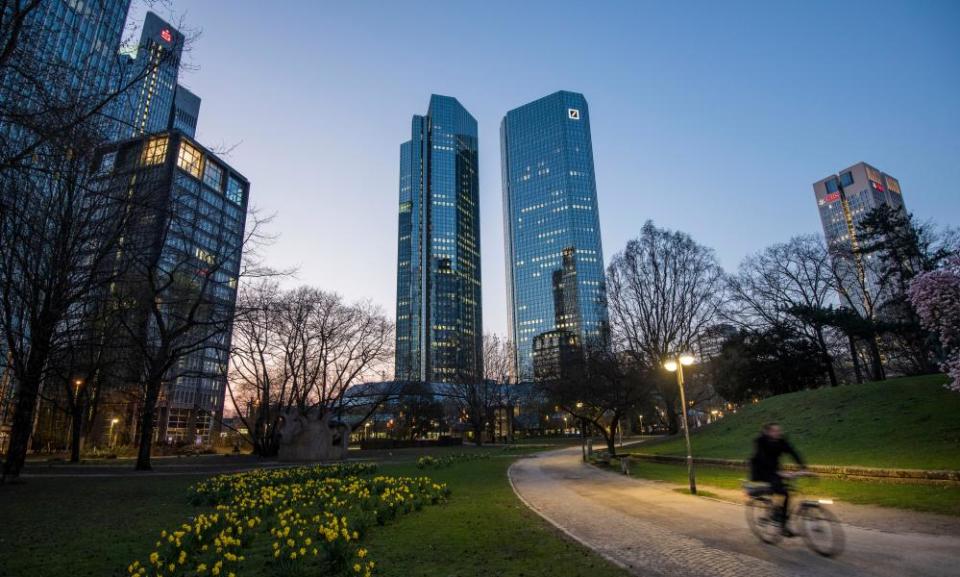Deutsche Bank is no Credit Suisse, despite investors’ fears

It’s rarely a good sign when politicians, in the middle of a crash in the share price of their country’s biggest financial institution, declare there’s nothing to worry about. Such remarks often just feed a sense of panic. The German chancellor, Olaf Scholz, would have been better advised to say nothing about Deutsche Bank.
But it is also true that Scholz was exaggerating only slightly when he said that “Deutsche Bank has fundamentally modernised and reorganised its business model and is a very profitable bank.” The modernisation has some way to go but, on the pure numbers, Deutsche is not the crisis-ridden, scandal-engulfed creature that it was in 2016-18.
The bank has had several rinses through chief executive Christian Sewing’s cost-cutting wringer and last month reported an annual profit of €5.7bn (£5bn), its highest for 15 years. By contrast, Credit Suisse lost 7.3bn Swiss francs (£6.6bn) in 2022 and was only six months into an unconvincing three-year turnaround plan.
Related: Deutsche Bank leads sell-off in European bank shares
One can point to other differences. There is no evidence of a flight of depositors at Deutsche, the factor that really sealed Credit Suisse’s fate. Nor, as far as we know, is the European Central Bank in a flap about Deutsche in the way that Swiss authorities were when they advanced a 50bn Swiss franc borrowing facility to Credit Suisse in the days before last weekend’s forced sale to UBS. At Deutsche, the only minor news from Frankfurt was a decision to buy back a small slice of its debt, which regulators would not have permitted if they were worried about liquidity.
Why then, for a second Friday in a row, were investors staring in horror at the plunging share price of a big European bank? At its worst point, Deutsche was down 14%. For the time being, file the episode under the generalised fear that the rolling banking crisis will keep rolling. All big European banks’ share prices were down – Deutsche, off 8.6% by the close, was just the heaviest faller.
A fear of more accidents is not irrational, of course. The club of central banks has decided that fighting inflation and ensuring financial stability are different tasks. The ECB, the US Federal Reserve and the Bank of England raised interest rates this week. None saw banking turmoil as a reason to delay. Their strategy may well be correct but it is not risk-free if the rapid rise in interest rates over the past 15 months is the deep cause of banking strife.
Then there’s the shock for investors in seeing 17bn Swiss francs of core capital at Credit Suisse – the now-famous ATI, or additional tier 1, bonds – wiped out overnight when the Swiss authorities wrote the instruments down to zero to ease the deal over the line. That sort of thing, investors assumed, couldn’t happen at a solvent bank. It all eats away at general confidence.
None of which, though, explains why – other than its recently chequered record – Deutsche found itself in the spotlight. Nothing of significance happened between Thursday and Friday. Investors are on edge, but we knew that already.

 Yahoo Finance
Yahoo Finance 